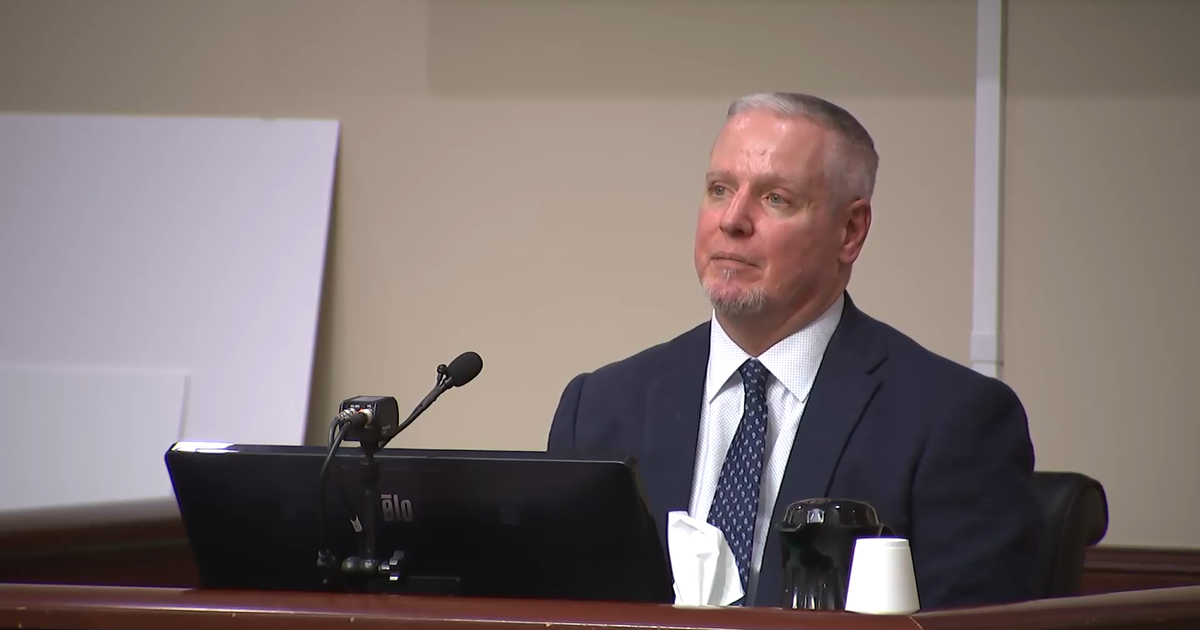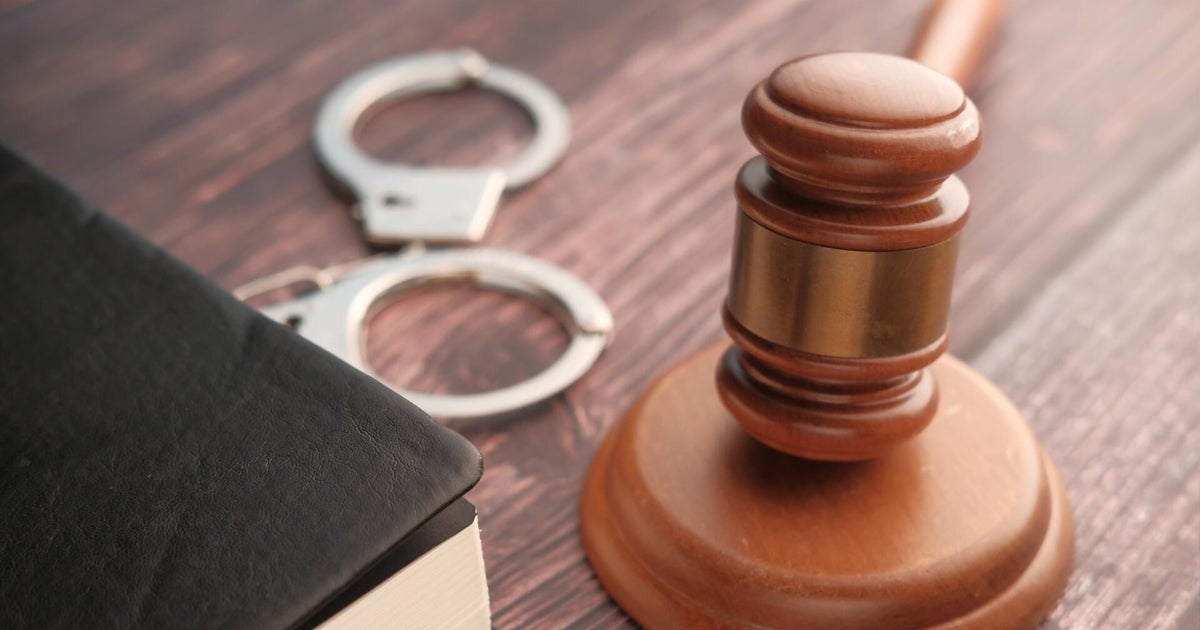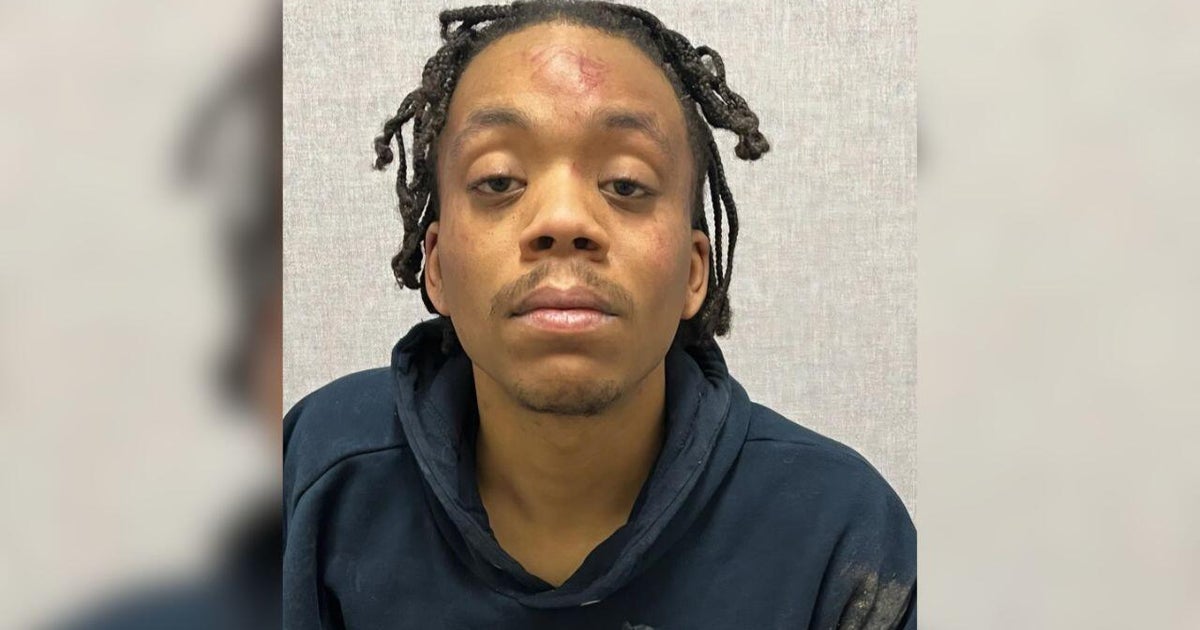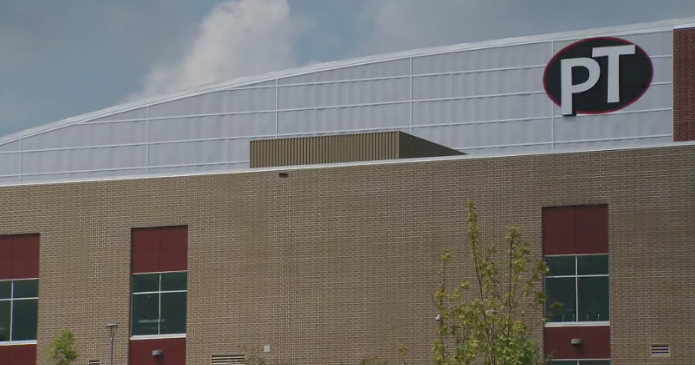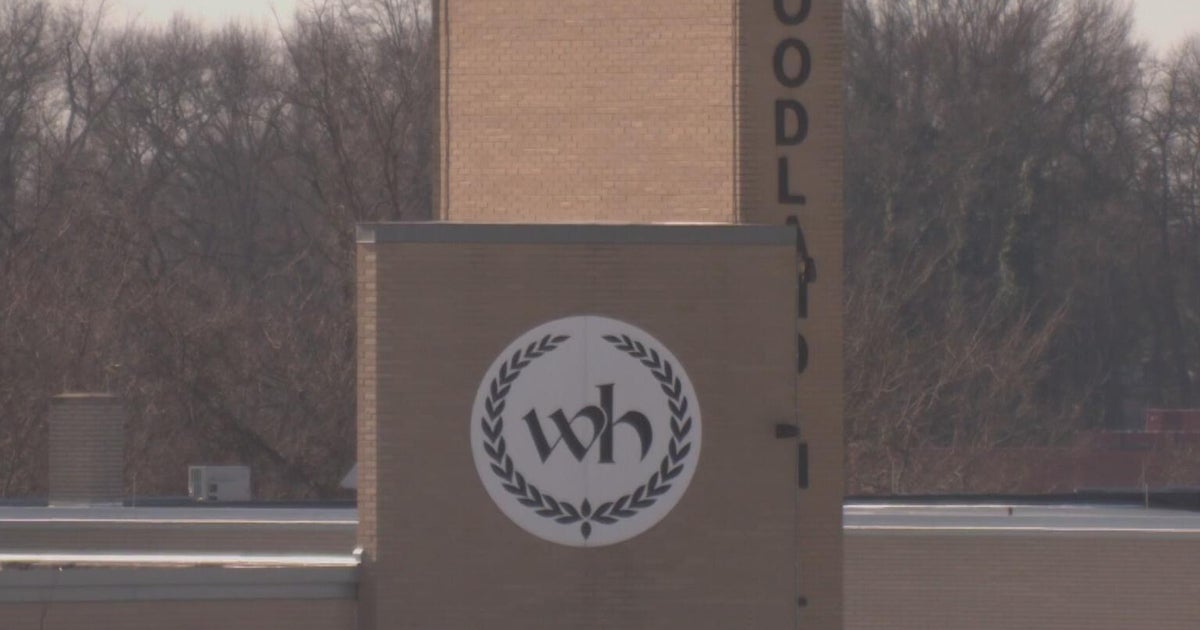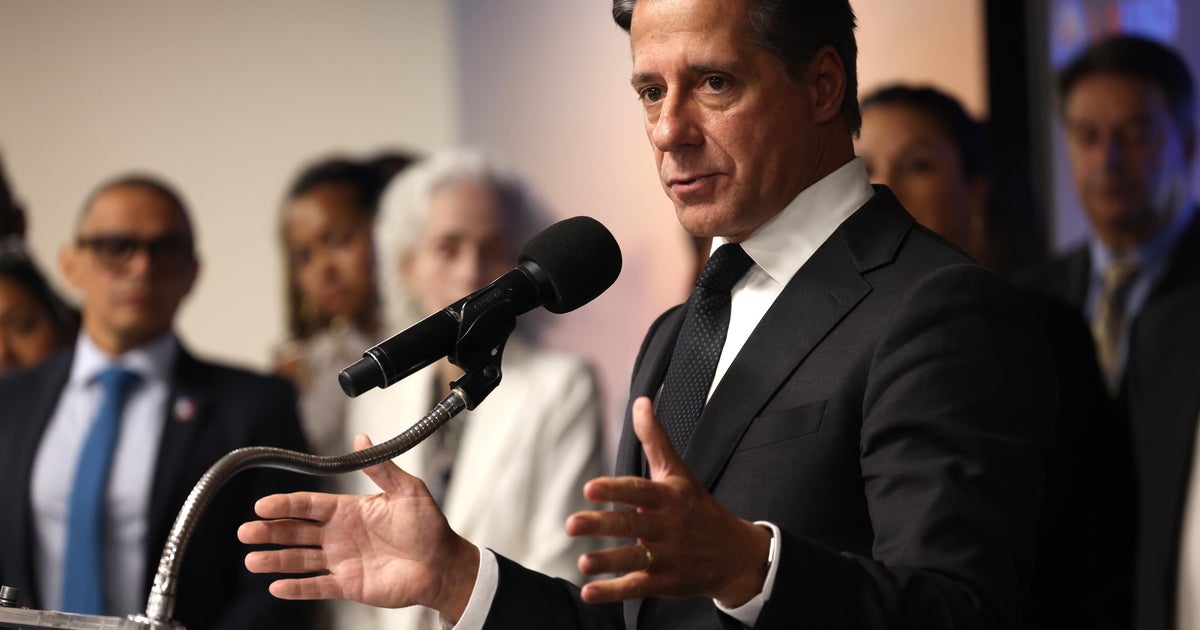Blago Judge Accuses Defense Of Putting Prosecutors On Trial
UPDATED 05/16/11 5:11 p.m.
CHICAGO (CBS) -- The federal judge in the Rod Blagojevich trial has accused defense attorneys of trying to put the prosecution on trial.
Defense attorney Sheldon Sorosky was asking John Wyma – a longtime friend and adviser to Blagojevich – about his decision to speak to federal investigators about the case in October 2008.
Sorosky pointed out that the subpoena was related to one of Wyma's clients, the Provena hospital system, not to Blagojevich. But when Wyma met with federal investigators, Sorosky said they focused on the allegations about Blagojevich, not Provena.
"Rod was not involved with the Provena issue was he?" Sorosky asked.
U.S. District Judge James Zagel cut him off, saying he was "wandering away" from Wyma's original testimony, saying "this is completely irrelevant."
Zagel sent jurors out of the courtroom to ask Sorosky what he was trying to find out from Wyma.
Sorosky said he wanted to show that Wyma began cooperating with the prosecution because he was afraid of being prosecuted himself after getting the subpoena.
"That's a factor that colors his credibility and believability," Sorosky said.
He also said that it was "not right" that federal investigators spent so much time questioning Wyma about Blagojevich when the subpoena was about Provena.
But Assistant U.S. Atty. Reid Schar said that investigators quickly determined after speaking to Wyma that the allegations regarding Provena – which were not discussed in court – were "found to be non-valid," while Wyma provided them information about Blagojevich.
"What's happening here is you're trying to put on trial somebody other than the defendant and some charges other than the ones that were returned," Zagel told Sorosky.
Sorosky insisted that he was not trying to put the prosecution on trial, but Zagel said "Oh yes you are."
"What you want to do is you want to make the government somebody you want to put on trial, that they've somehow been unfair in this process," Zagel said.
The judge said that, if defense attorneys believe prosecutors were somehow being unfair or acting improperly during their interviews with Wyma after he got the subpoena, they could file a complaint against the U.S. Attorney's office.
Defense Continues With Theme Of Making Arguments In Questions
Sorosky had been sparring with Zagel and prosecutors a great deal even before that exchange, as he continued trying to make its arguments while questioning prosecution witnesses.
He began his cross-examination at the start of the day Monday and quickly began prompting objections from the prosecution.
Sorosky started off asking Wyma about a rate increase for doctors at Children's Memorial Hospital. Last week, former deputy governor Bob Greenlee testified that Blagojevich told him to hold up the increase. Prosecutors contend Blagojevich wanted to get $50,000 in campaign cash from Children's CEO Patrick Magoon.
"Rod never said to you 'I am gonna only give the hospital this money if they do a fundraiser,' did he?" Sorosky asked.
Wyma said Blagojevich never used those exact words. Later, he also testified that he wasn't sure if the additional state funding that the hospital would get from the rate increase would go directly to doctors or go to the hospital itself.
Zagel cut off Sorosky when he began asking Wyma if he "could honestly tell the ladies and gentlemen of the jury" if he didn't know exactly where the additional state funding would go.
"Stop, stop, stop," Zagel said. "The form is objectionable."
But Sorosky pressed on, asking "You don't know where this money was supposed to go, is that correct?"
"You realize you're under oath, right?" Sorosky asked, drawing another admonition from Zagel.
"That falls in the category of 'Do you speak English?'" Zagel said, referencing a question defense attorney Aaron Goldstein asked Greenlee last week. "You owe a certain civility to the witness."
Sorosky apologized, but kept at it.
"Can you honestly tell the ladies and gentlemen of the jury you don't know who this money was going to?" he asked. Zagel finally told Sorosky "move on to something else."
Attorney Focuses On Two Words From Blago: 'F*** 'em'
The disputes continued as Sorosky moved on to the topic of Blagojevich's alleged shakedown of Illinois roadbuilders.
Last week, Wyma testified that Blagojevich told him about an upcoming $1.8 billion tollway improvement project and mentioned that he could have done a much larger construction plan.
Wyma also said Blagojevich told him he was going to have adviser Lon Monk ask road building executive Gerald Krozel to help raise $500,000 from the road construction industry.
According to Wyma, Blagojevich said, "If they don't perform, f*** 'em." He testified that he took that to mean that Blagojevich wouldn't move forward with the much larger tollway plan unless he got the $500,000 he was seeking.
Sorosky spent a great deal of time Monday focusing on Blagojevich's words "f*** 'em," implying that the statement could have meant any number of things.
"'If they don't perform, f*** 'em' is not the same as 'I'm not going to do the program?'" Sorosky asked. "That's two different things, isn't that right?"
But Zagel sustained an objection from the prosecutors.
"This is just conversation between two pals, is that right?" Sorosky asked, prompting another objection.
Sorosky also asked Wyma if he ever asked Blagojevich "what does f*** 'em mean?"
"First of all, f*** em is a profanity, right?" Sorosky asked. "Would you agree that 'f*** 'em' as an idiomatic expression is a vague expression?"
Zagel, clearly growing impatient with Sorosky, said that question was "beyond his (Wyma's) expertise."
Hospital CEO Testifies On Alleged Shakedown
Children's Memorial Hospital CEO Patrick Magoon took the stand Monday afternoon and testified that in June 2008, he wrote a letter to Blagojevich asking for a rate increase from the state for money that was provided to pediatric specialists for treating Medicaid recipients.
But Magoon said he got no response from Blagojevich until he reached out to former Chicago Cubs manager Dusty Baker – a former member of the hospital board – asking him to reach out to Blagojevich about the rate increase.
LISTEN: Newsradio 780's John Cody reports
Podcast
On Sept 23, 2008, Blagojevich called Magoon and said he supported a rate increase for the hospital, Magoon testified.
Less than a month later, Blagojevich called him again and told Magoon that he had approved a $10 million rate hike for the hospital, but "he asked that we not bring a lot of attention to this matter at this time."
According to Magoon, Blagojevich did not want him to discuss the matter publicly until after Jan. 1, 2009, when the rate hike would take effect.
Magoon said he didn't know why until five days later when Blagojevich's brother, Robert Blagojevich, called him.
Robert Blagojevich, who was running the governor's campaign fund, asked him to help raise $25,000 for the governor by Jan. 1, 2009, by reaching out to his professional colleagues, hospital board members and friends.
"From my perspective the two were linked and one, in my view, was in exchange for the other," Magoon said of the request for campaign cash less than a week after talking to the governor about the rate increase.
He explained that he believed the two were linked because of the common date of Jan. 1, 2009.
"The rate increases wouldn't take effect until January 1st and there was a request that I raise money by January 1st," Magoon said. "One appeared to be in exchange for the other."
"Given that we were asked not to draw attention to the matter, it was my belief that the rate increase would not be approved" if he didn't meet the request to raise $25,000 in campaign contributions.
Magoon said he had no intention of raising any money for the governor, but didn't tell that to Robert Blagojevich.
"That would be tantamount to telling him that his brother was doing something inappropriate or illegal," he said, adding that he feared the rate increase would not have been approved if he'd done so.
Magoon also testified that, when he learned Rod Blagojevich had been arrested on Dec. 9, 2008, the rate increase still had not gone into effect. At the first trial, it was revealed that the rate hike went into effect sometime in January, but not until after the original Jan. 1, effective date.
Prosecutors have contended Blagojevich held up the rate increase while trying to squeeze Magoon for campaign cash and that he only allowed the rate hike go through after he was arrested in an attempt to cover his tracks.
On cross-examination, defense attorney Aaron Goldstein emphasized that Rod Blagojevich himself never asked Magoon to raise money for his campaign or to give money personally.
He also implied that Robert Blagojevich's call to Magoon to help raise campaign funds for the governor was a simple request unrelated to the rate increase.
"Did Robert tell you to raise the money?" Goldstein asked.
"Robert asked me to raise the money; a very strong suggestion," Magoon said.
"Did he threaten you to do anything?" Goldstein asked. Magoon said no.
"Did Robert ever tell you that this was one for the other?" Goldstein asked. That question prompted an objection from prosecutors, which Zagel sustained.
Goldstein also pointed out that Robert Blagojevich never mentioned the rate increase in his phone call and neither did Magoon.
Road Building Executive Takes The Stand
Prosecutors also touched on another alleged shakedown by the governor when they called road building executive Gerald Krozel to the stand Monday afternoon.
Krozel testified that, on Sept. 18, 2008, he met Blagojevich at the governor's campaign office and Blagojevich revealed that he was initiating a tollway expansion program the next month and that he was considering a much larger tollway program after the new year.
Prosecutors have contended that Blagojevich went forward with a $1.8 billion tollway project, then dangled the possibility of a $6 billion highway program in order to convince Krozel to raise $500,000 from other construction executives.
Krozel testified that, at the time, the road construction industry was suffering as a result of the recession and many firms were laying off workers, so they desperately needed the highway projects the governor was talking about.
"I was very much enthused," by the prospect of the tollway projects, Krozel said.
At that same meeting, the governor mentioned that a new state ethics law was going into effect on Jan. 1, 2009, which would bar him from raising campaign cash from state contractors.
"He asked me to fundraise for him before that ethics law became reality," Krozel said. "I felt there was a connection between the amount I was going to raise and the project itself. … I felt that if I didn't raise any money, there wouldn't be a tollway bill."
Despite his concerns, Krozel said he had no intention of raising any money for Blagojevich, although he didn't tell the governor that. "I told him that I'd have to get back with him," Krozel said.
A few days later, Blagojevich's adviser, Lon Monk, called Krozel to follow up on his fundraising activities, but Krozel didn't want to let Monk know he wasn't going to raise money for the governor.
"Lon Monk and the governor were very close friends. I thought if I told Monk I wasn't going to raise any money, he'd tell the governor and there wouldn't be a $6 billion program," Krozel said.
He explained that one reason he wasn't willing to raise money for Blagojevich was that the Illinois Roadbuilders Association had received a federal subpoena regarding its campaign contributions.
Defense Can't' Get FBI Notes Of Obama Interview
Before trial started for the day, Zagel denied another request from the defense to get a copy of an FBI report of President Barack Obama's interview with federal agents in the federal investigation of the former governor.
Defense attorneys have requested several times to review the full FBI report of Obama's December 2008 interview with federal investigators. In their latest request, they said they were seeking "information as to whether or not President Obama ever reported or caused to be reported any of the alleged 'asks' that the government alleges were part of a 'shakedown' of the President."
Prosecutors contend that Blagojevich was trying to get a Cabinet appointment or other high-paying job from the Obama administration in exchange for naming the president-elect's friend and adviser, Valerie Jarrett, to the Senate seat Obama vacated in 2008.
But Zagel said there was no indication in the FBI report that Obama was even aware that Blagojevich had made such requests to the president-elect's advisers.
"Legally, it's not necessary that he be aware of the asks," for the requests to be illegal, Zagel said.
The defense has tried to argue a number of times at this trial that Blagojevich's alleged victims did not report the alleged shakedown attempts to the authorities, but Zagel has ruled that isn't relevant because a victim doesn't need to know a crime has been committed for the defendant to be guilty.
"You don't get to argue that you should have been acquitted because your foiled plan to rob a bank is unknown to any teller or officer of that bank," Zagel said.
The judge also granted a request from prosecutors to provide the jury with four summary charts that provide timelines of the various FBI wiretap recordings that are being presented at trial.
Defense attorneys objected to presenting those charts to the jury, arguing they would prejudice the jury against Blagojevich by emphasizing the government's interpretation of the secretly recorded conversations.
"It gives them a heightened importance," defense attorney Lauren Kaeseberg said. "It presents this in a closed universe as if it's the only way of viewing the evidence."
Sorosky also said the charts give the false impression that certain phone calls are related only to certain allegations against Blagojevich.
"These phone calls are intermixed with different topics," he said.
He also said it effectively allows the jury to take a copy of the government's closing arguments with them into the jury room.
"I don't think they (prosecutors) should be aided by extending their argument into the jury room," Sorosky said.
But Zagel disagreed, saying the charts were merely summaries of the date, time and participants of each recorded conversation.
"It's data in which there's not much dispute, in fact no dispute," Zagel said, adding that the defense can argue that prosecutors made mistakes when putting the charts together. "You're perfectly free to say the timelines are wrong."
--Todd Feurer, CBS 2 web producer
